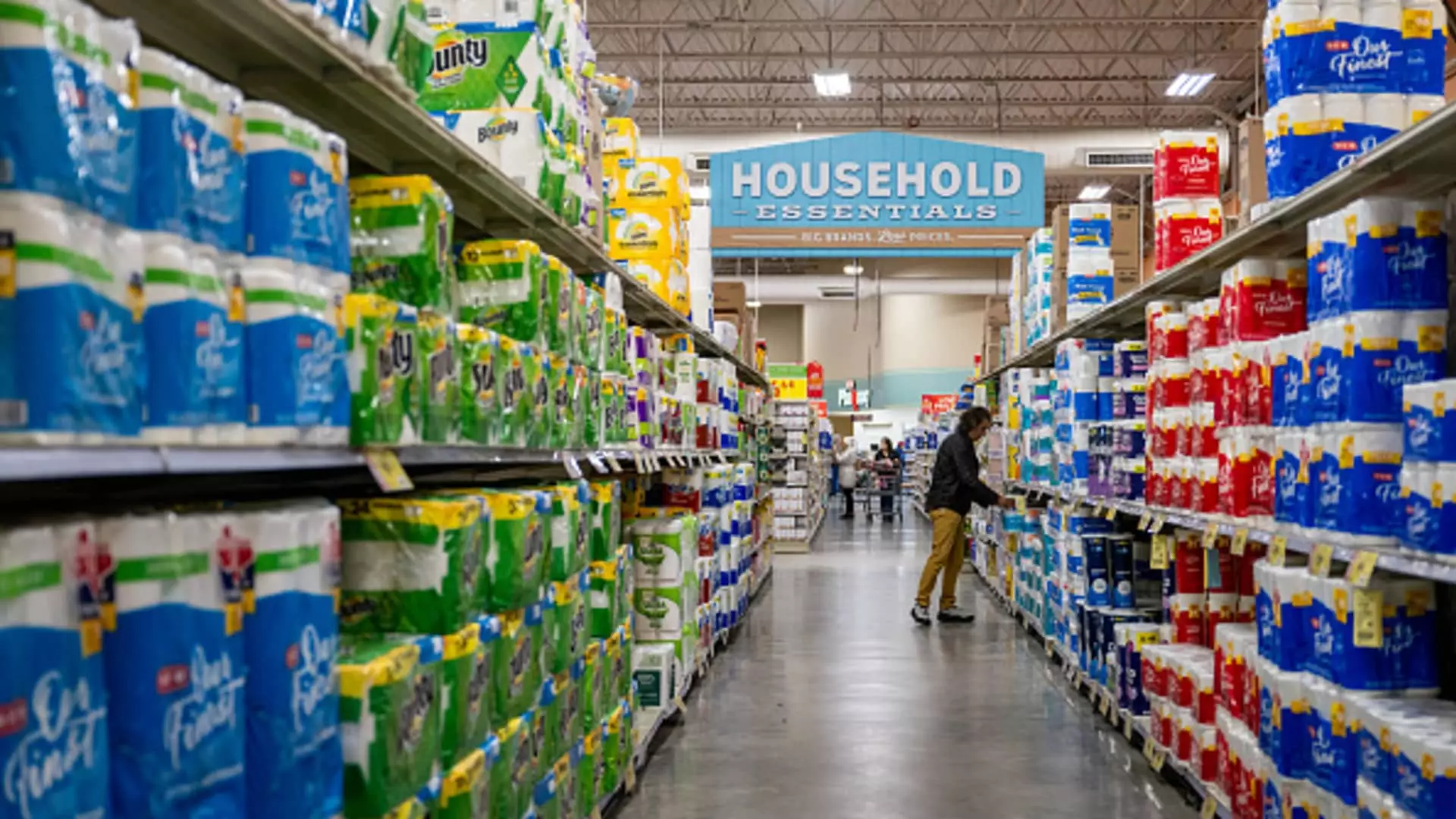Tariffs are often marketed as noble moves to protect and bolster domestic jobs, but what happens when well-intended policies backfire? The recent announcement by the Trump administration to impose tariffs on more than 180 countries paints a troubling picture for average U.S. consumers. Yes, the premise is to bring jobs back home—yet, in reality, these tariffs are set to drive up the prices of coffee, bananas, vanilla, and even toilet paper. The naive notion that America can isolate itself from global supply chains is not only shortsighted; it’s detrimental to the livelihoods of everyday people who are going to pay the price.
The Consumer Brands Association (CBA), a respected industry trade group, has raised legitimate concerns about the critical ingredients and materials that simply cannot be sourced domestically. For example, while Americans curl up with their morning coffee, they may soon find themselves parting with more cash due to inflated prices brought on by tariffs. This is the ironic paradox: even as the administration claims to champion the American worker, it is simultaneously hiking costs on essential goods.
The Disillusionment of “America First”
Howard Lutnick, the U.S. Secretary of Commerce, argues that the administration won’t entertain exemptions for specific goods. This is a blatant dismissal of the very real climate limitations our country faces, which necessitate the importation of certain staples like coffee, cocoa, and tropical fruits. The ongoing attitude that American self-sufficiency can outstrip global realities is disillusioning. This is not merely an economic issue; it reflects a deeper misunderstanding of modern trade dynamics that work in an interconnected world.
Bananas, for example, are not just a sweet treat; they are a dietary staple for millions. In 2023, nearly 40% of bananas consumed in the U.S. were imported from Guatemala, which is now facing a 10% tariff. Good luck justifying these price hikes at the grocery checkout when the cost of your morning smoothie skyrockets. The U.S. can’t simply will these resources into existence; the climate constraints and agricultural shifts of the past century have made importing these products a necessity.
Spices and Staples: Quality of Life at Stake
Another glaring example is the spike in prices for spices. Madagascar supplies over three-quarters of U.S. vanilla imports, which is a staple in countless kitchens. The government’s imposition of a staggering 47% tariff is not merely taxing a spice; it is taxing the quality of life, the accessibility of flavors that define countless cultural dishes. In effect, this creates economic barriers against culinary exploration and ingenuity.
As households brace for rising costs not only on food but also on household essentials like toilet paper, diapers, lotions, and shampoos, we find ourselves in an awkward position. A wide array of consumer goods will become more expensive as manufacturers hand down the costs of tariffs for wood pulp, shea butter, and other raw materials. In an era where financial literacy is critical for survival, families now face additional strain as they navigate these escalating expenses.
The Outlook: Investors vs. Consumers
Markets have reacted in a volatile manner, plunging upon the announcement but bouncing back when it comes to the consumer staples sector. This paradox shows the armor that investor perceptions can provide, as wealth management often prioritizes the security of stocks over the realities faced by average Americans. Shares of companies such as Procter & Gamble and Coca-Cola saw upticks, yet it’s imperative to question whose interests these gains actually serve.
The business models that will emerge in response to these tariffs aim to maintain profits, yet this will come at a steep cost to the consumer. It’s disheartening to observe how risk-adverse investments can distort priorities; for the average American family attempting to make ends meet, wall-street volatility is a distant reality compared to their ever-tightening budgets.
In the grand scheme, we must reassess our understanding of “America First.” Tariffs aren’t just an economic maneuver—they represent a serious threat to the affordability of everyday goods and, frankly, the American way of life. The uninterrupted pursuit of American self-sufficiency is a noble one, but when it blatantly disregards economic realities, one has to wonder if the path chosen is truly one of empowerment or one that leads to inevitable hardship.

